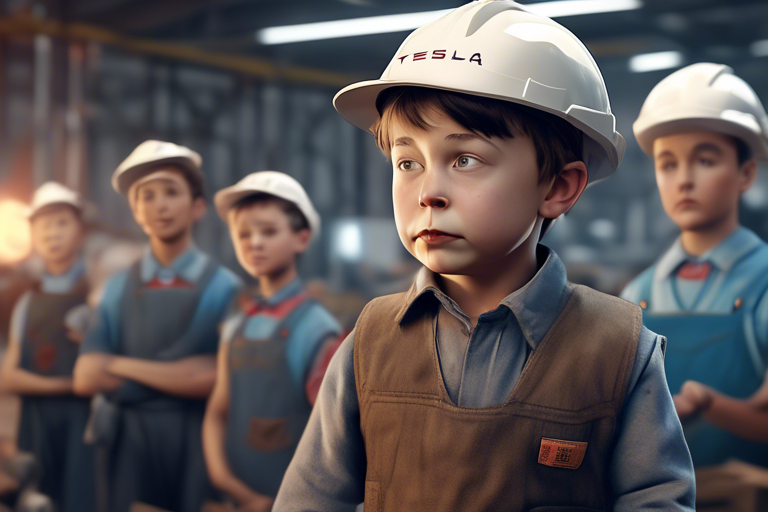Elon Musk’s Unfulfilled Promise to Monitor Child Labor Concerns at Tesla
As the world’s richest person, Elon Musk assured Tesla shareholders at the company’s annual meeting in May 2023 that he would address concerns regarding child and forced labor in the Cobalt mines that supply the electric vehicle maker. Despite Musk’s pledge to conduct third-party audits and install a webcam at the mines, a year later, these promises remain unfulfilled. The lack of visibility into the supply chain’s labor practices raises questions about Tesla’s commitment to ethical sourcing of Cobalt. Let’s delve into the details of this ongoing issue and the potential repercussions for Tesla.
Unkept Promises: The Absence of Transparency in Tesla’s Cobalt Supply Chain
While Tesla claims to conduct multiple third-party audits of its Cobalt suppliers, including the Kodo Copper Company in the Democratic Republic of Congo, independent assessments raise doubts about the effectiveness of these reviews in addressing child labor concerns. The reliance on monthly satellite images and limited on-site evaluations falls short of providing a comprehensive understanding of the working conditions in these mines. The following are key observations regarding Tesla’s approach to monitoring its Cobalt supply chain:
- Delayed Implementation of Webcam Monitoring:
- Musk’s proposal to install a webcam at the Cobalt mines has not been realized, with only periodic satellite images capturing the mining activities.
- Inadequacy of Third-party Audits:
- Despite claims of third-party audits, critics argue that these assessments fail to capture the true extent of child labor in artisanal mining operations, where most of Congo’s Cobalt is sourced.
Challenges of Monitoring Artisanal Cobalt Mining in Congo
The complexities of sourcing Cobalt from artisanal small-scale mines in Congo present significant challenges for companies like Tesla seeking to ensure ethical supply chains. The following factors contribute to the difficulties in monitoring and addressing child labor in the Cobalt industry:
- Presence of Children in Artisanal Mines:
- Around 40,000 children are estimated to be working or present in artisanal mining operations, driven by economic necessity and lack of access to education.
Subheads
- Limitations of Industrial Audits:
- Mechanized mine inspections overlook the pervasive issue of child labor in artisanal mining, where Cobalt is often extracted under exploitative conditions.
The Need for Comprehensive Oversight and Accountability
Experts emphasize the importance of holistic approaches to addressing child labor in Cobalt sourcing, particularly in unregulated artisanal mines that contribute significantly to the global supply chain. The following strategies can enhance transparency and accountability in Tesla’s Cobalt supply chain:
- Robust Monitoring Mechanisms:
- Implement a comprehensive monitoring system that includes on-the-ground inspections and regular audits of all suppliers, including artisanal mines.
- Collaborative Initiatives:
- Partner with industry stakeholders, NGOs, and local communities to develop sustainable solutions to child labor in Cobalt mining.
Hot Take: Upholding Ethical Standards in Supply Chain Management
Ensuring ethical practices and labor standards in Cobalt sourcing is a critical responsibility for companies like Tesla to uphold their commitment to sustainability and social responsibility. Musk’s unfulfilled promises regarding monitoring child labor concerns at Tesla’s Cobalt mines underscore the need for greater transparency and accountability in global supply chains. By addressing these challenges proactively, businesses can mitigate risks and contribute to the eradication of exploitative labor practices in resource extraction industries.





 By
By

 By
By
 By
By
 By
By
 By
By